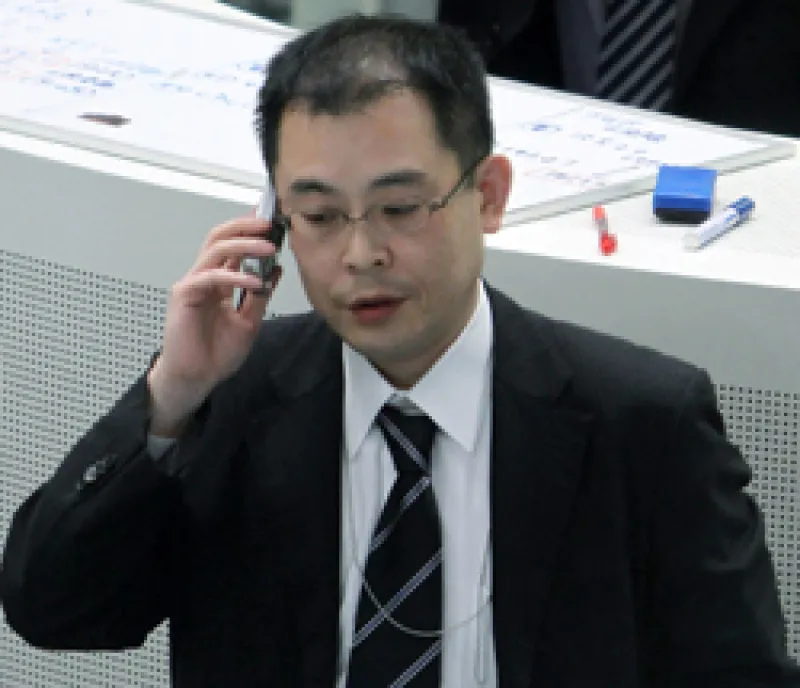What are the qualities required of a research chief in the topsy-turvy world of the Tokyo stock market? Patience? Persistence? Steadfastness? The Tokyo market has meandered for the last 30 years. Seen against the backdrop of the China markets, Tokyo has disappointed. Put another way, the market has valued Japanese stocks at book, roughly, while the Shanghai market prices stocks at roughly ten times book. Still, Japan is home to many brilliant companies, sitting on piles of cash. Unlocking that value has defied the best efforts of foreign investors, but hope still springs eternal.
In the aftermath of the mammoth earthquake of March 11, foreigners bought a record $11 billion in Japanese stocks in the week March 14 to 18. The quake, atrocious as it was, served as a buy signal to investors who had concluded that nothing could ever be worse than a Force 9 Richter scale quake coupled with the worst tsunami in memory.
In short, the market was over-sold, and who would know this better than the research chiefs of leading brokerage houses in Tokyo? Many had been their warnings to that effect. Still, no two research bosses think exactly alike. Sometimes, there are opposite mind-sets in the same firm. Take Nomura Securities, for example. Jun Konomi, head of equity research in Japan and newly appointed this year, has a different take on how to do his job than his predecessor Nobuyuki Takagi, now in charge of global research at Tokyo’s top brokerage. Konomi says that five years ago he would have been spending almost all his time on the research products—the reports by his 61 writing analysts in Tokyo. These days he is spending a huge amount of his time with clients, who want “small changes” in the reports, one after another, or who call for company visits, to meet with production chiefs and R & D specialists in those firms. Takagi, however, prizes the reports. He appreciates analysts who can see the future. They have got to be “sensitive to what is likely to happen,” he says. Making predictions on stock price movements is ok, but what he really wants to see is “not only that, but how they justify (predictions).”
Just five minutes walk away in the business section of Nihombashi are the offices of Merrill Lynch Japan Securities. There, Yohei Osade is the head of Japan research. Originally employed by Daiwa Securities--with whom he spent seven years in Europe, mainly as a Japanese equity salesman based in Milan, Italy—Osade joined Merrill Lynch in l998, and moved back to Tokyo with the giant firm. His take on Japanese stocks, as head of research with a background as a salesman, seems to be that he must be able to offer the clients new ways of looking at Japanese stocks. He says that he changed his methods as recently as the last few months. Japan, he notes, used to be “independent.” Now it is “part of Asia.” Accordingly the reports by his 34 analysts in Tokyo have got to take account of global trends, first and foremost. From a couple of months ago, Osade has required that his analysts start work on their reports by considering, first, the “global counterparts” of the firms they are looking at. They must start overseas. By such means, he says, his analysts can produce “high value added reports”. Clients have been impressed by Osade’s rigor. Merrill Lynch shot up from No 11 to joint No 1 with Nomura in the All-Japan Research Team 2011 rankings.
Morgan Stanley, the US investment bank, is a firm with a commitment, as regards research in equities in Japan. Last year the bank joined hands with Mitsubishi UFJ Financial Group (MUFG) to set up two joint ventures in the securities field in Japan. One of these two JV’s, Morgan Stanley MUFG Securities, targets mainly institutional investors. Stefan Pendert, a managing director, is a pivotal figure in the firm; he serves as both head of sales and head of research at the same time. The idea is to serve clients “(using) the research department as the heart of our advisory business,” according to Pendert, who declines to be more specific but indicates that it is unusual for the research chief and the sales boss to be one and the same person.
Yet another research chief with high ambitions for Japan is Orlando Faulks, a managing director of Global Markets Research-Japan at Deutsche Securities, a unit of the Deutsche Bank Group. Faulks has drawn attention by his selection of top-ranked analysts, resulting in his firm’s stronger performance in the 2011 ranking (joint No 6 with Morgan Stanley MUFG Securities). Asked to name his priority as research chief Faulks responds that it is “to keep open communication with all the people” involved in research in the firm. Doing this is “extremely time-consuming” but indispensable to keeping up with others. People can be the key to performance in all firms. At the time of writing Chikara Nakamura, newly appointed on April 1, as senior managing director at Daiwa Securities Capital Markets, in succession to Masatoshi Makino, was doing the rounds within his company, to secure support for Daiwa’s ongoing efforts in research. Daiwa this year slipped back in the rankings from joint No 1 with Nomura, to No. 3. Nakamura declined to speak to Institutional Investor, saying that he was busy with intra-mural calls. Daiwa has been Nomura’s biggest rival among the Japanese brokers for years. Nakamura wants to shoot back up to No. 1 spot again, next year. However, competition is getting to be a lot tougher these days. Communications skills are vital. Keeping the clients happy is three-quarters of the battle these days, the players say. “We’ve gone from being contents-oriented to services-oriented,” says Konomi of Nomura.




